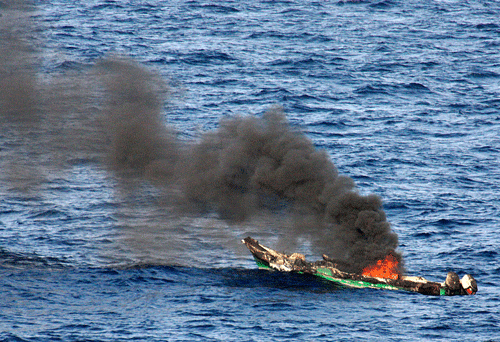
India, which has the largest number of pirates in its custody, is a very important member of the piracy contact group, a senior US official has said.
US Coordinator for Counter Piracy and Maritime Security Donna Hopkins said "India is a very important member of the Contact Group and, in fact, chaired a plenary" and has more pirates under its custody than any other country.
"There is almost no littoral country, no naval country, and no major shipping country that has not contributed actively to the contact group. And the two that you've mentioned have been very important partners," she said.
Hopkins said at present about 1,430 Somali pirates – either suspected and being tried or convicted and in prison in 21 countries. Somalia, after India, has the largest number of pirates under its custody.
Hopkins said there has been no piracy hijacking off the coast of Somalia since May 2012.
"This is the lowest rate of attempted hijackings in over six years, and certainly since the peak of the crisis in 2011. No ships are currently held hostage by Somali pirates, although there remain at least 49 hostages whom the international community are working to free," she said.
She said the remarkable drop in piracy was primarily due to two things: proactive counter-piracy operations by the many national navies and missions that are preventing and disrupting pirate attacks off the coast of Somalia and in the eastern Indian Ocean, and better self-protection by commercial ships, including the use of embarked armed security teams.
The CGPCS is a group of countries and organisations with a common interest in eliminating piracy from the Gulf of Aden and the Indian Ocean. It was constituted in 2009 to facilitate the discussion and coordination of actions among states and organizations to suppress piracy.
Deccan Herald is on WhatsApp Channels| Join now for Breaking News & Editor's Picks